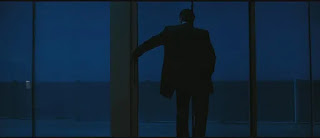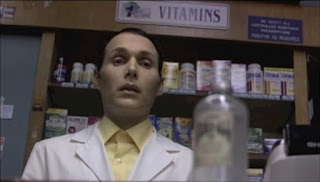Heat (Michael Mann, 1995, USA)
Michael Mann's Heat is arguably the pinnacle of the crime drama. While other films have attempted to do it since, very few have been able to reach the technical and emotional heights of Mann's 1995 film - including Mann himself. The film in some ways represents the pinnacle of this style for Mann, as he would later attempt in some ways to deconstruct the crime film. Likewise, the film represented a turning point in the careers of both Al Pacino and Robert De Niro. Arguably Heat was the 90s renaissance height of both of their careers.
It is hard to say something new about Heat. Many have commented on and documented the film's attention to detail. From the use of real sound during the famous shootout sequence to the decision by Mann to film entirely on location and not on sound stages. The film is also a "who's who" of great actors - even the minor roles in the film are populated by known actors. At 3 hours, the film's pacing is remarkably strong - there is a constant sense of tension in the cat-and-mouse race until the film's end.
Why Heat stands apart from many of its contemporary films is the emotional core at the film's center. It is telling that the film is remembered as much for the diner conversation between Neil McCauley (Robert De Niro) and Vincent Hanna (Al Pacino), as it is for the bank heist. The film's finale, accompanied by Moby's "God Moving Over the Face of the Waters," is surely one of the most moving and human moments in any film. Heat is an experience that represents the peak of a certain kind of genre cinema - it is a film that people had never seen before, and will likely never see again. For that reason, it is a classic.
10/10




Comments
Post a Comment